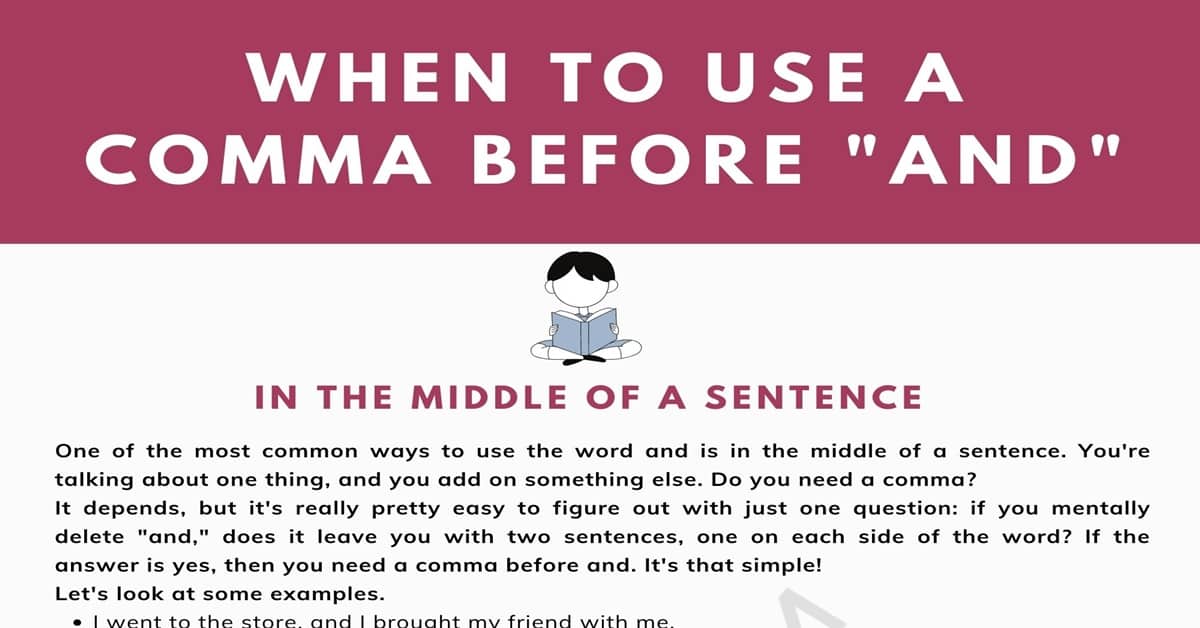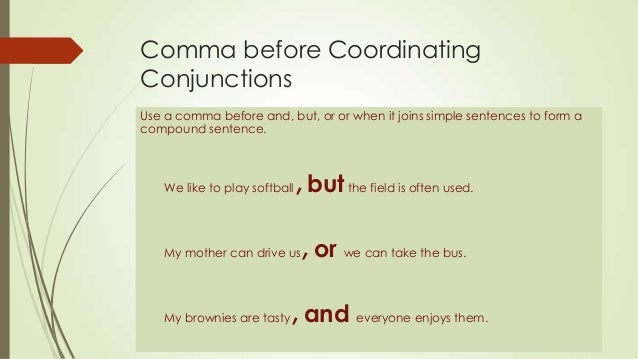When To Use A Comma Before Which. Firstly, you should understand what type of sentence you have. We heard three speeches, the longest of, which went for an hour.
The comma is the most popular punctuation mark in the english language. There are multiple comma usage rules, and the factors determining their usage are not black and white. When you're describing something with two or more adjectives, you can use a comma. Specific computer logic, but logic in a computer is. They're probably the most common piece a comma before the conjunction, known as the serial comma or oxford comma, is optional.

He punched me in the jaw and knocked me out, which i wasn't happy about.
You don't need a comma before which when it's part of a prepositional phrase such as of which, in which or on which. When you use which to ask a simple question, you don't need a comma. Most newspapers and magazines drop the oxford comma in a simple series, apparently feeling it's unnecessary. You use a comma before which in several places: Enclose nonessential phrases and clauses in insert a comma before contrast clauses. A bit more on using a comma before which. Use the following search parameters to narrow your results i'm trying to proofread a report for my boss, and they inconsistently include a comma before which. i know that when the which clause is in the middle of the sentence, and is not necessary to the sentence, you surround the clause with. Examples of the comma before and, so, yet and or. Other examples of which in a prepositional phrase are on. Thankfully, learning when to use a comma before and after which is. Specific computer logic, but logic in a computer is. Got confused when you should put a comma before which? Regarding the comma before because, that's a matter of opinion.
Use a comma before which when it introduces a nonrestrictive phrase. A nonrestrictive clause contains additional information that describes a noun or a noun phrase in your sentence. As a general rule, you should use a comma to introduce quoted material or dialogue, but there are three times you shouldn't. Use commas to separate coordinate adjectives. When do you use a comma after but?
Specific computer logic, but logic in a computer is.
When you use which to ask a simple question, you don't need a comma. We heard three speeches, the longest of, which went for an hour. A bit more on using a comma before which. The good news about the comma. You might want first to refresh your memory about starting a sentence with but. They're probably the most common piece a comma before the conjunction, known as the serial comma or oxford comma, is optional. Enclose nonessential phrases and clauses in insert a comma before contrast clauses. Some comma placement rules are set in stone, some are not. We use commas to separate a list of items, places, things, ideas etc. When name of places, person, things are written all together ,then we use comma. When you're describing something with two or more adjectives, you can use a comma. Jane is going to visit london and paris there are arguments for and against using this oxford comma. The logic behind this is that it all depends whether you need to differentiate the object you are talking about from another one with common traits.
What distinguishes english from most other languages is its use of commas before a dependent (subordinate) clause. When to use a comma before which. Specifically, yes or no, whether it necessary to add a comma before which. i have made a living working in logic. They're probably the most common piece a comma before the conjunction, known as the serial comma or oxford comma, is optional. When you're describing something with two or more adjectives, you can use a comma.

There are multiple comma usage rules, and the factors determining their usage are not black and white.
You might want first to refresh your memory about starting a sentence with but. When one clause is independent, and the other is. You should use a comma before which if you want to introduce a nonrestrictive clause. Specific computer logic, but logic in a computer is. An example of when to use a comma before a name is, my boyfriend, carl, went to yale. Use a comma between the items in a list, to separate two independent clauses, and after a subordinate clause. Use a comma after a dependent clause that starts a sentence. We heard three speeches, the longest of, which went for an hour. Commas are used to split up different parts of a sentence, and when used correctly they bring clarity and flow to your writing. When do you use a comma before which? When do you use a comma before and after but? We use which with nonrestrictive clauses, while we use that with restrictive when it comes to grammatical conundrums, commas are often the culprit. And, but, for, or, nor, so, yet.